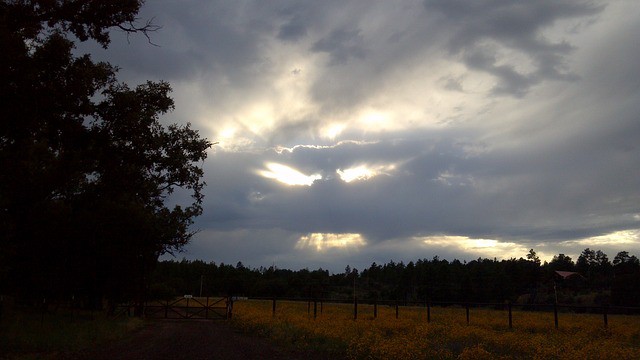Ending your D&D campaign is a hard thing to do, but every good thing must come to an end. Or in some cases, every bad thing must come to an end.
The best way to end a D&D campaign is on good terms that cause the players and you to remember the experience fondly. The worst is with a simmer or blow up.
Campaigns can end on a sour or great note. Today I will help you end your campaigns in a good way.
How to properly end your game
We will go over a lot of ways that campaigns end poorly in this article. Some ways include group issues, social issues, incremental issues, and more. I will help you avoid these issues, but you want to end your game in a positive way.
In order to do this, your game must have an end in mind. How would you like your game to end? Obviously not in a fight or when people just stop showing up, but narratively.
Do you want the party to fight the big bad guy and lose? Win? What?
Creating an ending to your campaign needs to be a priority.
If you do not have an ending, the game will end. It just will not end in the way that you want. This is because you do not have an idea of what you want. Therefore the only way that it will end is in a way that you do not want.
This is the biggest problem that people have. They do not plan an ending.
If there is a reason that your campaign cannot go on in the foreseeable future, plan right away how to end it!
I for example see my campaign ending in about a year. The party will not get to level 20 and we will not play forever. I have to plan for this and have already come up with a few ideas.
If you have an ending planned out then you can work on making the game lead towards it instead of just fizzling or suddenly coming to a close.
Once you have a plan on how to end the game you still need to do more, but lets cover why a campaign could end poorly and how to avoid it/what to do if it does.
Bad Ending Causes
The slow fizzle

Ending your D&D campaign is hard. So lets just think about it later.
1 month later-People want to do other stuff, but lets still let it slide.
2 months later-players are starting to loose interest, but lets just keep on trucking!
3 months later- I know everyone is 20 and wants to do other things, but let’s just keep on going. I’ll end it soon probably.
3 1/2 months later- Guys? Where are you?
This is an example of a slow burn. The dungeon master does not think of a concrete ending for the game and just keeps putting it off.
The cracks have shown for the players and they want to do other things but the dungeon master just has refused to plan for it.
When at any time interest starts to wane on a party wide scale ask the players what they want. If they want something from your game that you can produce that is great!
On the other hand if you cannot produce what they want or the game that you are running just will not allow it, talk to them about ending the game.
Don’t say that you want to end it right there, but instead tell them that you hear them and want to give the game a good send off.
Give the players a timetable and get your final plans in motion quickly. If you planned two or more things before the players reached their final part of the story hand wave it and push them towards the climax.
Finish your game on a high note rather than just letting the game slowly die.
This will keep your group of friends together and give you a great memory instead of a forgettable one.
But what if you need some time and it isn’t the group?
DM burnout
We already have a section on DM burnout but it does not completely cover ending your D&D campaign so we will fix that here.
When ending your campaign due to DM burnout make sure that you tell your players why the campaign is ending. if you cannot finish the game with a proper climax.
If you still have enough embers left in you, try to finish the game in a climax like we described in the previous section.
Do something that is fun, creative, and just do something fun. This will make your recovery much quicker and have the game leave a good spot in your memory.
If you cannot end the game and you are just too burnt out then tell your group honestly that you are not able to finish the game. Tell them why and most of the time they will understand.
It is much better if you can finish the game properly with a climax and all but sometimes DM burnout sneaks up on us and we have to end it.
Your players will most likely understand since they will have seen it by now.
Once again I highly suggest reading the article on DM burnout, but let’s go to factors outside of your control.
Social issues that might arise and cause a game to end abruptly.
Social issues
One of the worst way to end a campaign is through social issues.
Social issues can present themselves in distasteful characters, people not getting along, others not respecting boundaries and a whole host of things.
If you are having social issues talk about them with the involved parties and solve it asap! Do not leave it to fester or your game will die in a horrible manner!
Ending your D&D campaign because of social issues is one of the worst things because the group is now done or at best splintered.
The best you can do with this is try to work issues out like civilized people. This is not normally a game issue but ends up effecting the game so take care of it if possible.
Each situation is unfortunately too different to give insightful help on besides ‘stop it asap.’
But sometimes issues are not as overt. Some social issues and other in game issues can build until the foundation of your game comes crumbling down.
Death by 1,000 cuts
Some campaigns end because of one big reason. Others end up dying because the game is slowly ripped to pieces.
Consistent mistakes can cause the ending of your D&D campaign.
If you decide one week to change a rule and then keep changing rules every week, the players may feel lost or not take the game seriously.
Perhaps you don’t just mistake rules but also cause people to feel like the story isn’t going anywhere since you are ill prepared.
Perhaps it isn’t you. Maybe the other players just start coming later and later until finally the game is unimportant to everyone. The game also starts later and later due to private conversations becoming more imporatant than the game.
People might do other things to slowly kill the game and so might you.
These are often a slow burn and end up with either people just not showing anymore, agreeing to cancel the game since interest has waned, or at worst all of these things lead up to a catastrophic explosion.
Any way you look at it the game will end if constant mistakes or apathy is put forth towards the game.
Like with social issues, you need to identify these problems and try to fix them.
We are not perfect and will make mistakes, but we can always try to do better.
That said, not being confident in yourself is also a campaign killer so don’t always apologize. Have fun and just try better each time.
Good ways to end a campaign
Group ending date

Whew. Now that we have the bad ways out of the way, let’s talk about the good ways you could be ending your D&D campaign.
In order to get to these ideas, we need to cover some basics.
First and foremost, have an ending date in mind! My game is going to end in a year whether I like it or not.
Most people don’t want their games to end or even think about it and I am there with you. I do not want this game to end, but reality sucks. Therefore I have an end date in mind.
If you have a really cool group and want to do something that might seem a bit ridiculous, talk to your players.
I talked to mine since I was considering speed leveling them to get through the content and they are ecstatic. Some groups would not be, but you should talk to your players if you are planning to do something drastic.
If you have a plan in mind that isn’t going to cause confusion you do not need to tell your group about it.
Have an end in mind, and plan for what it might be!
If you do not plan an ending, a bad ending is the only outcome.
Get your plot rough date and have your players work towards this end.
Planning the end
Now that you have an idea on when you are ending your D&D campaign, how should you do it?
No game is going to go exactly as planned. You, after all, have players and players are like insane psychopathic children.
You never know what players are going to do and that is the fun of D&D.
Because you cannot script your players actions, plan loosely and let there be some wiggle room for players to add to the plot.
Here is a great example.
The plan is for the party to destroy the evil artifact and save the world.
Great start. Now add ‘after the players gather allies.’ Continue to add ‘once they gain the macguffin.’ Lastly, add ‘once the wards are destroyed.’
Now it ends up as ‘The party destroys the evil artifact to save the world after they gather allies, the macguffin, and destroy the wards.’
This way small quests are able to be added to the end plot while you still have an idea to work towards. You do not even need to add it by small quests. Players could have sparked these ideas from mistakes that they made and created their own enemies who hide the macguffin or do something else.
An end should be planned but you can always add a little bit more to it from player action.
You as a dungeon master just do not want to make the ending come out of nowhere and surprise the players.
Foreshadowing

Some writers are able to cleverly foreshadow parts of the ending through a story. If you know the end goal then you can foreshadow as well.
Foreshadowing is just subtly alerting people about a future issue. This might seem hard, but you have players to work with. Most are not going to notice or care too much until it happens and they put the pieces together.
An example of foreshadowing that was blatantly obvious happened in my game recently.
The group obtained ‘the cursed crown of king Larry.’ Upon identifying it the crown gave some life steal and wasn’t obviously cursed. The crown was hiding something else, but no one knew what it was.
Two weeks later in game time, the character who wore the crown started to go bald. This character couldn’t figure out what was making him bald and took two more weeks to figure it out. His skin starts to deflate, and he realizes it was the cursed crown that has now wormed it’s way into the characters psyche.
Is this brilliant foreshadowing? Not really since there is no subtly, but the player didn’t catch on until the future events were in motion. Your players can be surprisingly blind to simple things. This allows even those who are not good with foreshadowing to try their hand at this.
If your players figure out the plot by your foreshadowing do not change anything. Let them bask in their ingenuity and work to get better at foreshadowing in the future but for now let them congratulate themselves.
All this does is allow your players to have a small edge in the upcoming finale and get more excited for the climax. Is that really a bad thing? You want them to be invested after all.
Stakes
There should be some sort of stakes at the end of your campaign. Players do not generally lose, but they should have the option to.
If there is no way for someone to lose, then the event itself is boring.
The world does not need to be at stake. If the world is at stake that is minor. We have seen this trope so much that having the fate of the world in our hands is a standard event.
No, you need to make it personal.
What is valuable to a player and what do they have to lose if they lose? Will they never get answers to what they have been chasing? Will their character arc never be complete?
Perhaps loved ones will die. Maybe the players just want their stuff! Whatever the reason, there should be a personal thing at stake for each player.
This is the big mistake that dungeon masters make. When ending your D&D campaign, make the stakes personal. The world is a cheap cop out.
Now we are ready to move onto the climax.
Make a climax

You have foreshadowed your ending to make it not come completely out of the blue and surprise your players and have made sure that they have personal stakes. Since your players will be invested in what you make, let’s get started creating the climax!
When ending your D&D campaign it has to be epic! Or does it?
Each game differs and so therefore does the climax.
If your game is based around politics and creating a lasting peace, your climax could be a calm tranquil one where the characters have brought together the leaders of nations, convince them to sing peace treaties, and make the world a quieter place.
Some games end up with players uncovering a mystery. In these games the players should be rewarded for solving the mystery and acknowledged for their hardships. You can have a giant climax that involves action too, but the mystery is the main aspect.
Focus on what your game has been about. Make your climax focused on that and your players will be happy with a more memorable experience than just some pomp and flash.
If your group is all about battles or stopping a big bad evil person then make the climax be an extreme event. Have anime fights, landscapes change, go all out! Make your fights interesting!
Make sure that your climax reflects the journey for your players and gives a sense of closure to the plot, but don’t be too strict.
If you plan for players to defeat the big bad but instead all decide to join him what do you do?
Flexible endings
D&D is not a book. It is a living breathing game that is directly influenced by players. Therefore, you should not plan for a nice clean ending.
We talked about getting to the climax, but don’t plan any further than this.
Planning for what happens after is a mistake that most dungeon masters make. They try to force an outcome and make players win without any possible way for them to fail.
I highly disagree with this practice.
You should give your players a fair chance at the end. If your players have prepped to make the ending easier, great. If they have just waltzed into every situation and are not planning at all for the climax the difficulty might increase.
Ending your D&D campaign should have a sense of tension and a possibility of failure. Once your players overcome this failure they will tell you what they do in the end.
If your players fail, they may get desperate and pull some amazing answer or stalemate out of nowhere.
You cannot plan for the end since this is a living and breathing game. Let it flow naturally as you have for the entirety of the campaign.
After the game has ended, it is important to have closure for your players.
PC epilogues
Your climax has happened and the ending to your plot has finally come. The game however, is still not over.
Each person needs closure and you should first provide it to your players. They have worked hard with these characters and have grown attatched to them so let your players give an epilogue to their own character.
Each dungeon master does it differently. Some ask the players what their characters do 1 year from the event and where they are now. Others ask the players to describe the adventures that the character has till the end of their days (or at least retirement). There are many more options, but I would recommend these two PC epilogues.
If you plan to use the character again in the future and are not done with them use the 1 year after method.
This method lets the player use that character later but still gives a sense of closure after the climax. This lets the player put the character away and have the option to use them in the future or not.
In addition, this method is generally pretty brief and makes players not take too long on their own epilogue.
The other method brings a complete sense of closure for the player. After thinking about the character’s whole life, they will fell that character has earned a break and should live happily ever after.
This method essentially kills the character for future use and takes a lot of time, but generally, characters are not played again after they have ended a campaign.
If you really want to delve into this method, you can go into what that character is doing in the afterlife and potentially use them in your world in future games.
I highly recommend this extra part for player characters that have died, and it adds a sense of closure while letting the character always have a vague sense of being alive.
It is a little odd that this sense of being alive comes from describing how someone spends their eternity after death, but this is a strange game.
In this strange game, players can get attached to NPCs and want to know what happens to them.
NPC epilogues
We all have those favorite NPCs that we want to know about, but sometimes players do not really care too much to learn what happens to an NPC.
Therefore, NPC epilogues should only be done upon player request, or if they truly want to know.
It is a little much to talk about every NPC, but some NPCs get really close to players. If your players have fostered a close relationship where they will ask about an NPC tell them a small epilogue.
Generally make these epilogues a good thing. If you describe what happens to the big bad or an enemy, make it seem fitting.
Some NPCs could have their epilogues in PC epilogues. If this is done, just let the PC have the final word unless it is absolutely ridiculous.
NPC epilogues are not that big of a deal, but they are important to tie up loose ends.
Tie up loose threads

Most games have a few loose ends. It is important to realize which loose ends need to be tied up and which should not.
If a loose end will cause confusion and is something that the players should know, then tie them up by making a nice complete narrative.
Most of these loose ends will be covered in the climax or player epilogues.
If you do not need to cover it or something isn’t directly relevant to your players, leave it. This adds more mystery and wonder to the world. If you reveal everything beyond the hill then you will have to erect mountains for the players to go beyond next time.
Don’t overextend
If your game is coming to a natural ending, do not over extend games. Finish the story and start a new one if you can but do not drag out content. It has not gone over well in any sort of media. It will not go over well with you.
Just let the ending happen when it happens and start a new fun adventure rather than beating a dead horse.
Doesn’t have to end
Ending your D&D campaign is hard so why not just never end it?
I am kidding of course, but you can keep going. If real life isn’t an issue.
Your game can continue even if you hit max level or have finished the current narrative arc.
New journey can be made and even if you are level 20 there is more yet to do.
Normally this is not the kind of thing that people are looking for when they are looking to end a campaign, but if you want me to expand upon this in a future article I can.
This article has already been far too lengthy.
Conclusion
Ending your D&D campaign is a hard thing to do. We generally do not want a good thing to end but we have to at some point.
If we do not end our campaign by planning out an end and acting on it the game can only end in a bad way.
Therefore we need to plan an ending for our campaigns and act on it.
I hope that the information in this article has helped you avoid some potential issues that you might encounter and taught you how to properly end a campaign.
Each campaign is it’s own unique thing and requires you to do some work on your own, but I hope that I have given you the tools to make a successful ending to your game.
Lastly, if you want to support the blog you can get stuff for it! We offer The Cube as a custom add on to your game and our affiliates. At Dice Envy they offer well made and cool looking dice and Dungeon Vault helps to help give you extra tools to make your campaign even better! I prefer to use my dice from Dice Evy since they are actually balanced and love to use the tools from Dungeon Vault. Lastly, we do have a Patreon if you want to support us more directly.
This has been Wizo and keep rolling!




